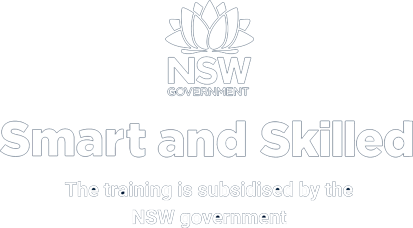Discover the vital role of construction managers in the success of your construction projects. With their expertise, construction managers provide leadership, coordination, and technical knowledge to ensure projects are completed on time, within budget, and to the highest quality standards.
They excel in efficient planning and execution, managing costs and budgets, mitigating risks, and ensuring compliance with regulations. They’re also great at collaborating with professionals such as architects, engineers, subcontractors, tradespeople, clients, and stakeholders is essential for exceptional project outcomes.
Learn how to find and hire a competent construction manager by conducting thorough research, interviewing candidates, and making an informed decision based on qualifications and compatibility. Establish effective collaboration through clear communication and expectations. By partnering with a skilled construction manager, you set the stage for a successful project.
Introduction to Construction Managers and Their Significance
Defining the role
At its core, the role of a construction manager is to oversee and coordinate various aspects of a construction project. Essentially, they act as the bridge between the client, the design team, and the construction team, some of whom may have undergone a skills assessment via Trade Recognition Australia, to ensure the project progresses smoothly from start to finish. A construction manager is also responsible for managing budgets, schedules, quality control, and safety on the site.
Understanding the scope of their responsibilities
Construction managers can often be found wearing multiple hats throughout a project. They are involved in the planning phase, working in close collaboration with architects and engineers to develop a comprehensive construction plan.
During the construction phase, they manage the procurement of materials, supervise the construction team, which can include members with a CPC30220 Certificate III in Carpentry, and monitor progress to ensure adherence to the project schedule.
Highlighting their importance in project success
The importance of construction managers cannot be overstated. Their expertise and experience help navigate the complexities of construction projects, mitigating risks, and ensuring efficient and successful outcomes. A reliable construction manager will also ensure that any project member who requires a QBCC builder’s licence possesses one. With their comprehensive understanding of the construction process, they can identify potential issues early on and implement effective solutions, saving you time, money, and energy.
💡KEY TAKEAWAY: Construction managers play a vital role in the success of construction projects. They provide leadership, coordination, and expertise to ensure that projects are completed on time, within budget, and to the highest quality standards. Their ability to handle the diverse responsibilities of construction management is instrumental in achieving project objectives and client satisfaction.
Key Skills and Qualifications
Technical expertise and construction knowledge
Possessing strong technical expertise and comprehensive construction knowledge is vital. It’s important that the manager you work with has a deep understanding of construction principles, materials, and techniques. This knowledge enables them to make informed decisions, provide guidance to the involved team, and ensure that projects are executed with precision and efficiency.
Effective communication and leadership abilities
A good construction manager is able to clearly articulate instructions, collaborate with diverse groups, all of whom bring a unique set of skills to the table, and establish a cohesive work environment. By fostering open lines of communication, they can ensure that everyone is on the same page and working towards a common goal. These leadership abilities will inspire and motivate a team, and that’s what will drive them to deliver their best work.
Project management and problem-solving skills
Because construction managers are responsible for overseeing complex projects, strong project management skills are crucial. From creating schedules and managing resources to monitoring progress and resolving issues, they need to possess excellent organisational and problem-solving abilities. Being able to anticipate challenges and proactively address them is essential to keep projects on track and achieve successful outcomes.
💡KEY TAKEAWAY: Construction managers possess a blend of technical expertise, effective communication and leadership skills, and strong project management and problem-solving abilities. These qualities enable them to navigate the intricacies of construction projects, lead their team with confidence, and ensure that projects are completed on time and within budget.
The Benefits of Having a Construction Manager on Your Project
Ensuring efficient planning and execution
One of the key benefits of having a construction manager is the expertise they have to create comprehensive project plans, including timelines, schedules, and resource allocation. Thanks to their meticulous attention to detail, they can identify potential bottlenecks and develop strategies to prevent them. And by overseeing the project from start to finish, construction managers can ensure that everything runs smoothly and according to plan.
Managing costs and budgets
Construction projects often involve complex financial aspects, and construction managers excel in managing such costs and budgets. They have a deep understanding of the financial aspects of construction, including estimating costs, sourcing materials, and negotiating with suppliers.
With their expertise, they can keep a close eye on expenses, optimise the use of resources, and make informed decisions to stay within budget. Depending on the strength of relationships they have built in the industry, this can also lend them considerable negotiating power. All this can help you avoid cost overruns and keep your project financially viable.
Mitigating risks and ensuring compliance with regulations
Construction projects come with inherent risks and regulatory requirements, so a construction manager plays a crucial role in mitigating these risks and ensuring compliance with regulations. They proactively identify potential hazards, implement safety measures, and promote a culture of safety on the construction site.
Moreover, construction managers stay updated with the latest regulations and ensure that the project adheres to all applicable codes and standards. Their expertise in risk management and regulatory compliance safeguards your project, and most importantly, protects the well-being of all involved.
💡KEY TAKEAWAY: Having a construction manager on your project brings numerous advantages, including efficient project planning and execution, effective management of construction costs and budgets, and comprehensive risk mitigation and regulatory compliance. With their expertise, you can navigate the complexities of construction projects with confidence, ensuring timely completion, financial stability, and adherence to safety protocols. Partnering with a construction manager sets the stage for a successful project, bringing you closer to your goals in the building and construction industry.
Collaborating with Other Professionals
Working alongside architects and engineers
Architects provide creative vision and design expertise, while engineers ensure structural integrity and technical feasibility. By working closely with these professionals, a cooperative construction manager can translate architectural concepts into practical construction plans. Collaboration fosters an environment of creative problem-solving, where the expertise of architects and engineers complements construction knowledge. As a result, the team can achieve a harmonious integration of design and function, resulting in exceptional outcomes.
Coordinating with subcontractors and tradespeople
From electricians and plumbers to carpenters and masons, each professional plays a vital role in the construction process, and a good construction manager knows this and is able to utilise everyone’s strengths to the fullest.
Collaborating effectively with subcontractors and tradespeople ensures the seamless execution of specialised tasks. By keeping strong relationships with these professionals, construction managers can create a collaborative environment that maximises productivity and minimises delays.
Communicating with clients and stakeholders
Most importantly, the construction manager you hire should know how to effectively communicate with clients and stakeholders. Typically, this involves actively listening to their needs, clarifying expectations, and providing regular updates on project progress.
Collaborating with clients and stakeholders ensures the alignment of objectives and helps manage expectations throughout the construction process. This way, everyone can address concerns, note changes, and build trust throughout the process. Ultimately, effective communication enhances client satisfaction and fosters long-term relationships.
💡KEY TAKEAWAY: Collaborating with professionals in the construction industry, such as architects, engineers, subcontractors, tradespeople, clients, and stakeholders, is vital for successful project outcomes
How to Find and Hire a Competent Construction Manager
Researching and evaluating candidates
Start by conducting thorough research to identify potential construction manager candidates. Look for individuals or firms with a proven track record in managing successful construction projects. Consider their experience, qualifications, and reputation in the industry.
Lastly, stay on the lookout for reviews, testimonials, and examples of their past work to gauge their competence and reliability. You can also ask trusted relatives and friends for personal recommendations. By taking time with your research, you can create a shortlist of candidates who align with your project requirements.
Interviewing and assessing their experience and skills
The next step is to interview the shortlisted candidates to get a better look at their experience and skills. Prepare a set of relevant questions that will help you gauge their understanding of construction management principles, their problem-solving abilities, and their communication skills.
Ask about their experience in handling projects similar to yours, and inquire about their approach to collaboration and conflict resolution. By conducting thorough interviews, you can gain insight into the candidates’ expertise and figure out if they are a good fit for your project.
Making the right decision and establishing effective collaboration
After assessing the candidates, make an informed decision based on their qualifications, experience, and overall fit with your project. Look for a construction manager who not only possesses technical skills but also demonstrates excellent leadership qualities and the ability to build strong working relationships.
Once you’ve made your selection, you can establish effective collaboration by clearly defining roles, responsibilities, and expectations. Foster open lines of communication and encourage regular project updates. By establishing a strong working relationship, you can lay the foundation for a successful partnership with your construction manager.
💡KEY TAKEAWAY: Through the interview process, assess their experience, skills, and approach to construction management. Finally, make a selection based on qualifications, experience, and compatibility with your project.
Unlock your construction potential with Everthought. As a leading provider of top-notch training and skills development, we empower individuals like you to thrive in the dynamic world of construction.





